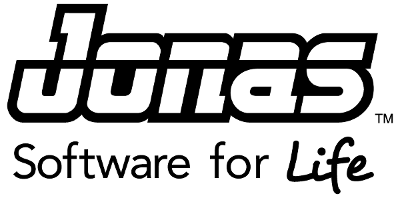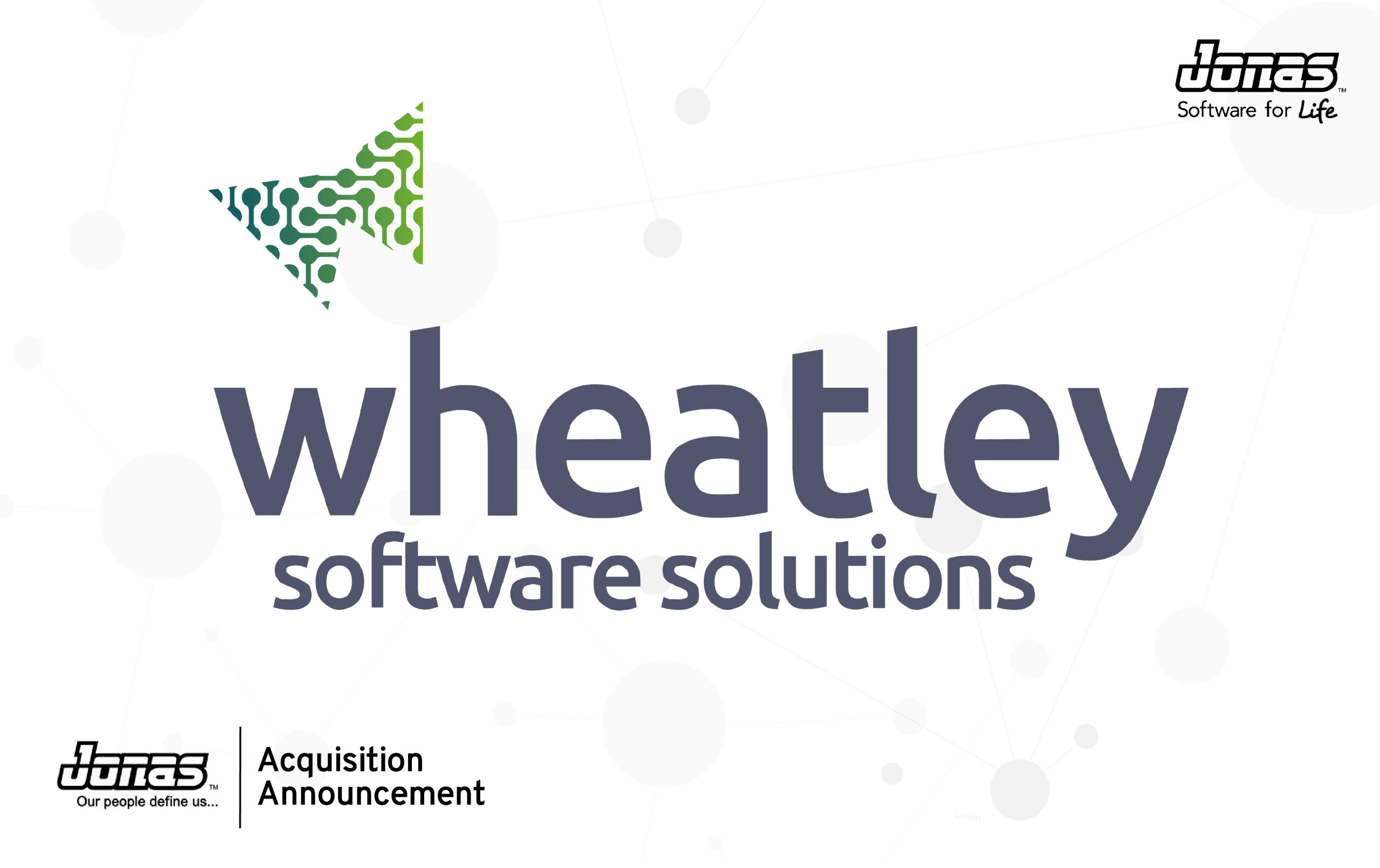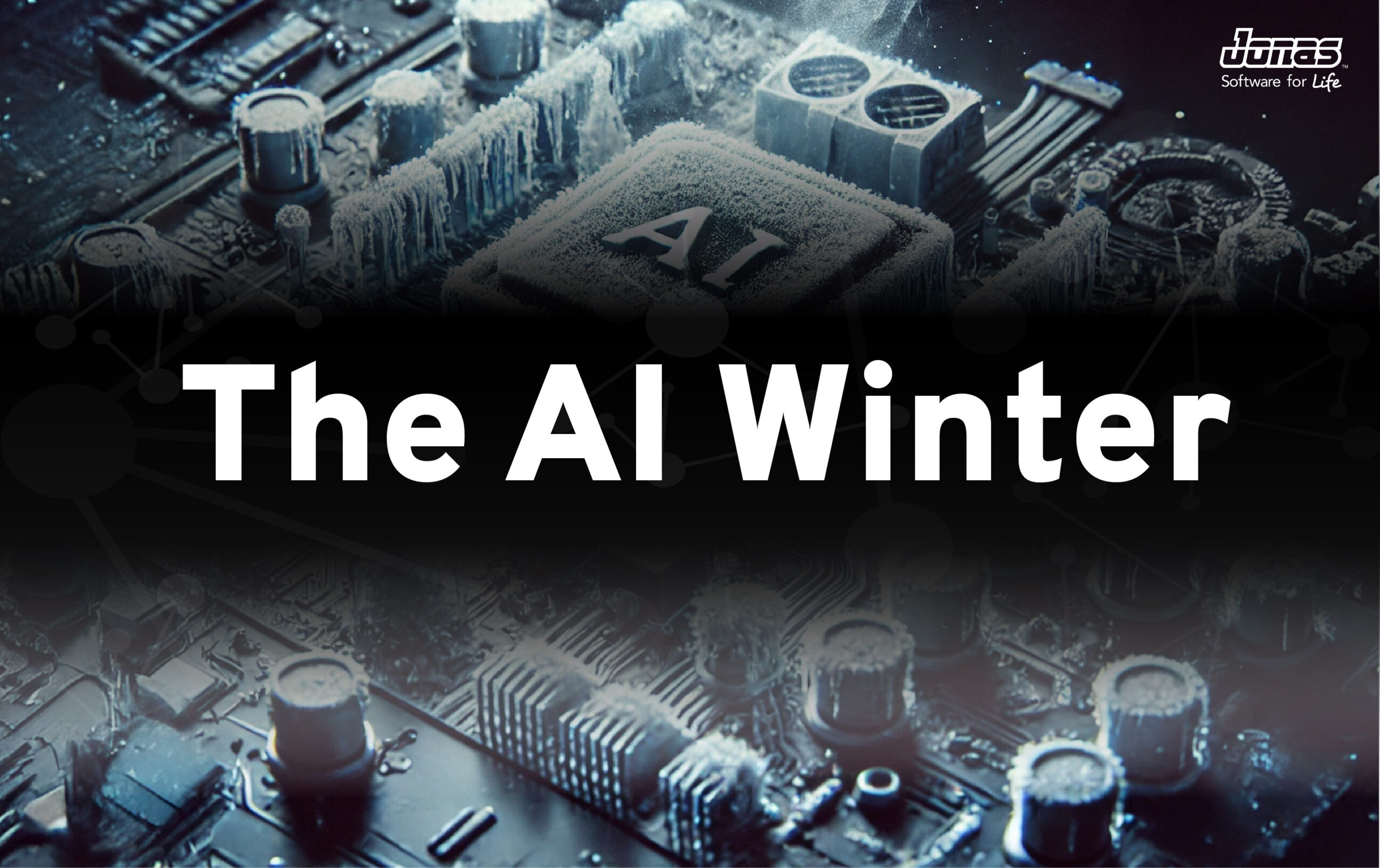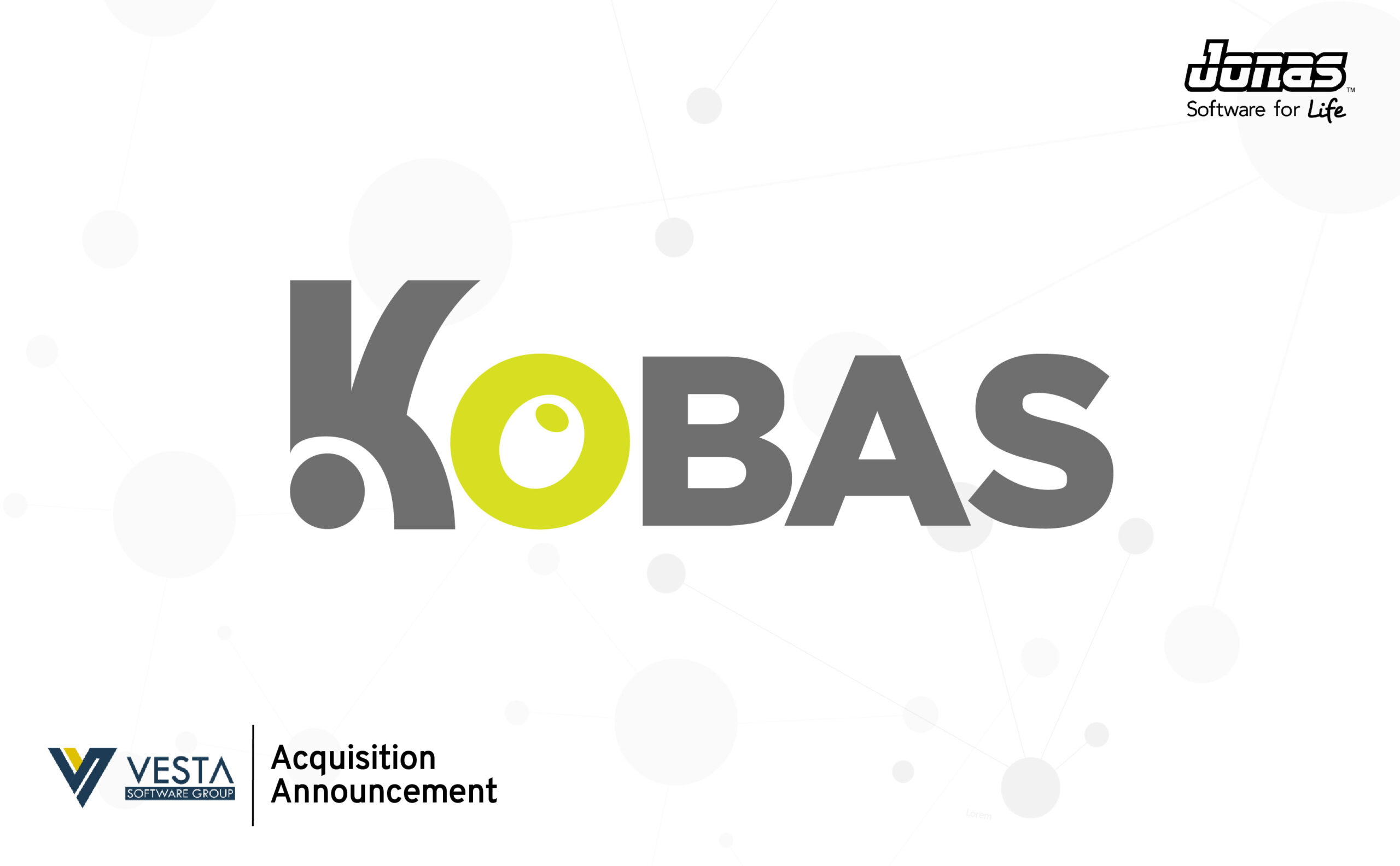In recent months, speculation about a potential ‘AI Bubble’ or ‘AI Winter’ has gained traction among industry analysts. With concerns over infrastructure limitations, diminishing returns on large language models, and increasing regulatory scrutiny, many are wondering whether artificial intelligence (AI) is approaching a period of stagnation.
As a leader in the Vertical Market Software (VMS) industry, Jonas Software is uniquely positioned to assess whether these fears are justified—or if we are simply seeing AI evolve beyond the initial hype cycle into a phase of sustainable, resilient, value-driven innovation.
Understanding the ‘AI Winter’(or AI Bubble) Speculation
Historically, AI has undergone periods of immense excitement followed by setbacks due to technological and economic challenges. Today, some experts point to several factors that could signal another downturn:
Computational and Infrastructure Bottlenecks
The demand for high-powered GPUs and data centers is skyrocketing, leading to supply chain challenges and increased operational costs. Without scalable hardware solutions, AI growth could slow significantly.
Diminishing Returns in AI Models
While AI models from Open AI or Google continue to evolve, their performance improvements are becoming more incremental, despite exponentially higher training costs.1
Regulatory Pressures
Governments worldwide are implementing stricter AI regulations, such as the Artificial Intelligence and Data Act (AIDA) in Canada, the EU AI Act, and U.S. executive orders, which could impose hurdles on widespread adoption.2
Market Sustainability Challenges
Many AI startups struggle to achieve profitability, and venture capital investment has shown signs of cooling. This raises concerns about whether AI-driven companies can sustain their rapid pace of innovation.3
Why AI In Vertical Market Software is Resilient
Despite these concerns, the AI revolution is far from over. In fact, for companies in the VMS space, AI adoption is shifting from broad experimentation to strategic, targeted implementation. Here’s why:
Industry-Specific AI Delivers Tangible Value
Unlike generalized AI solutions, vertical market AI applications focus on solving specific industry problems—whether in healthcare, construction, hospitality, or finance. This specialization leads to more reliable and measurable outcomes. For example, Vizergy, a Jonas company, built a process to automate labeling images for their customer’s website. This solution utilizes computer vision technology, a branch of AI, to analyze images and automatically generate ALT text and tags – making images ADA-friendly and easily searchable. https://www.vizergy.com/blog/integrating-artificial-intelligence-prioritizing-time-and-saving-energy/
Automation as a Competitive Advantage
Businesses are increasingly turning to AI-driven automation to streamline operations, reduce costs, and improve customer experiences. Companies that leverage AI in these targeted ways will continue to see substantial ROI. At Jonas Fitness, they use an AI chatbot to help support customer service. This AI integration helps streamline the customer experience. https://jonasfitness.com/iris-ai/.
The Future of AI in VMS: Adaptation Over Stagnation
While some sectors may experience a slowdown in AI investment, Jonas remains confident that AI will continue to drive meaningful advancements in vertical market software industries. The shift from broad, experimental AI to strategic, applied AI presents an opportunity for businesses to refine and optimize their approach.
As AI evolves, companies in the VMS space should focus on:
- Optimizing existing AI solutions rather than chasing the latest trends.
- Investing in industry-specific AI models that address real-world business needs.
- Enhancing human-AI collaboration rather than replacing human expertise.
Conclusion
While it is impossible to predict with certainty whether an ‘AI Winter’ (or ‘AI Bubble’) will materialize, one thing remains clear: AI continues to demonstrate resilience and adaptability within the vertical market software space. As the industry moves beyond hype and into practical, results-driven applications, AI is proving to be a transformative force. Companies that embrace AI strategically—focusing on efficiency, industry-specific solutions, and sustainable growth—will be well-positioned to thrive, regardless of broader market fluctuations.
Resources:
- 1 Source: https://www.artificialintelligence-news.com/news/openai-faces-diminishing-returns-latest-ai-model/
- 2 Source: https://www.whitecase.com/insight-our-thinking/ai-watch-global-regulatory-tracker-canada
- 3 Source: https://www.ctol.digital/news/trouble-finding-article-error-404/
Contact Us to Learn More

Recent Posts
Career Progression Stories: Stacey Long
We caught up with Stacey Long, Jonas Software's VP of Human Resources, to talk about her career progression, her role at Jonas, our ABCs, and...
Vertus Group Acquires Cornerstone Billing Solutions
Chicago, Illinois, USA – Vertus Group, a Division of Jonas Software, is thrilled to announce the acquisition of Cornerstone Billing Solutions...
Navigating Success: Heather Klassman
Thought-Leadership Insight with Heather Klassman We caught up with Heather Klassman – current Portfolio CEO at CORA Group, to talk about her career...
Why I Sold – Acquisition Stories with Neil Mukerji, Kobas
We caught up with Neil Mukerji, the former co-owner of Kobas. Kobas is an all-in-one hospitality management platform for restaurants, bars, and...
CSI Chat Highlights: Sovereign Debt to Improv in Business
CSI Chat is hosted by Scott Denneny, Vice President of Finance at Constellation Software (Jonas Software’s parent company). The podcast brings...
Jonas Europe Acquires Wheatley Software Solutions
Wallingford, Oxfordshire, April 28th, 2025 – Jonas Europe (“Jonas”) is pleased to announce the acquisition of Wheatley Software Solutions. Wheatley...
Jonas In Medicine – Vertical Overview
Jonas Software’s entry into the medical and healthcare space began in 2007 with the acquisition of Computrition—a pioneer in foodservice management...
Jonas Software Acquires SQiBLE
Brisbane, Australia, April, 14 2025 - Jonas Software ANZ “Jonas” is pleased to announce the acquisition of SQiBLE. SQiBLE is a market-leader with a...
Vesta Software Acquires Imaginet Limited
Wallingford, Oxfordshire, April 9, 2025 – Vesta Software Group ("Vesta"), is pleased to announce the acquisition of Imaginet Limited (“Imaginet”), a...
The AI Winter Speculation and its Effects on Vertical Market Software
In recent months, speculation about a potential 'AI Bubble' or 'AI Winter' has gained traction among industry analysts. With concerns over...
ABC To Growth: Unlocking Value Through Carve-Outs
Why Consider a Carve-Out?Unlocks Capital and Resources Carving out non-core businesses can be extremely favorable for sellers. A key benefit of a...
Vesta Software Acquires Kobas
Wallingford, Oxfordshire, March 3rd, 2025 – Vesta Software Group (“Vesta”), is pleased to announce the acquisition of Hospitality Tech Holdings Ltd....













